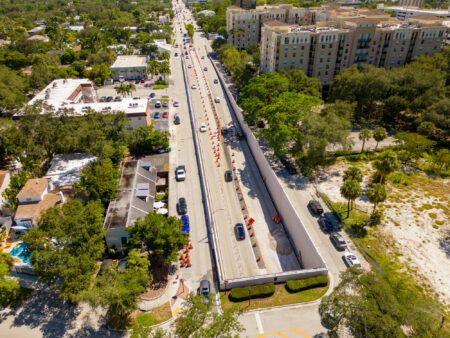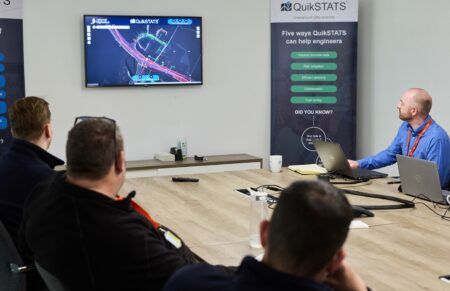The chief economist from one of the global leaders in connected car services and transportation analytics has commented on two recent UK reports concerning the country’s future road building programs.
Inrix’s chief economist, Dr Graham Cookson (below), has responded to the National Audit Office’s (NAO) progress report on the UK government’s £11.4bn (US$14.3bn) Road Investment Strategy, which warns that 20% of the schemes may need to be delayed, amended or cancelled due to concerns about value for money. Cookson also comments on a study of 86 road schemes commissioned by the Campaign to Protect Rural England (CPRE), which found most roads increased traffic while destroying the countryside. Cookson shares his thoughts on what delaying these schemes will mean for UK congestion, and offers a solution for planning road and wider transport networks more effectively.
“The £11.4bn investment in our roads was eagerly anticipated by drivers fed up with the daily burden of congestion, a problem which the recent Inrix UK Traffic Scorecard estimated was costing UK drivers almost £31bn or almost £1,000 each,” said Cookson.
“Delaying, or even worse cancelling, these road improvements will strip the economy of billions, hamper business efficiency dramatically, and waste drivers’ time and money. Despite these issues, congestion can be seen as a good problem to have, as it’s a strong indicator of prosperity and economic growth. However, in order to resolve these issues, we must find a solution before negative effects of traffic detract from the positive causes.”
Cookson continued, “One of the NAO’s main concerns was the speed with which the Department for Transport performed the initial project appraisals at the expense of value for money. But the government at both central and local levels can now conduct project appraisals and post implementation evaluations in record time by leveraging the power of big data, and on-demand analytical and data services, such as Inrix Roadway Analytics. Basing future planning on data-driven insights is by far the most cost effective and efficient way to both understand and respond to the evolving challenges associated with both roads and wider transport networks. There’s no excuse for not acting quickly, as there are effective cloud-based products on the market that use big data to help solve problems like these.”
“Unfortunately, as the CPRE study shows, solving the problem of congestion isn’t as easy as just building new roads. Instead of focusing solely on road expansion, we need to be smart and consider more sophisticated approach to reducing congestion. Yes, new roads are definitely required in some instances, however, we should also consider bold options such as increased remote working, wider use of road user charging, and, most importantly, investment in big data to create more effective and intelligent transportation systems. Basing future planning on data-driven insights is by far the most effective way to both understand and respond to the evolving challenges associated with both roads and wider transport networks,” Cookson concluded.




